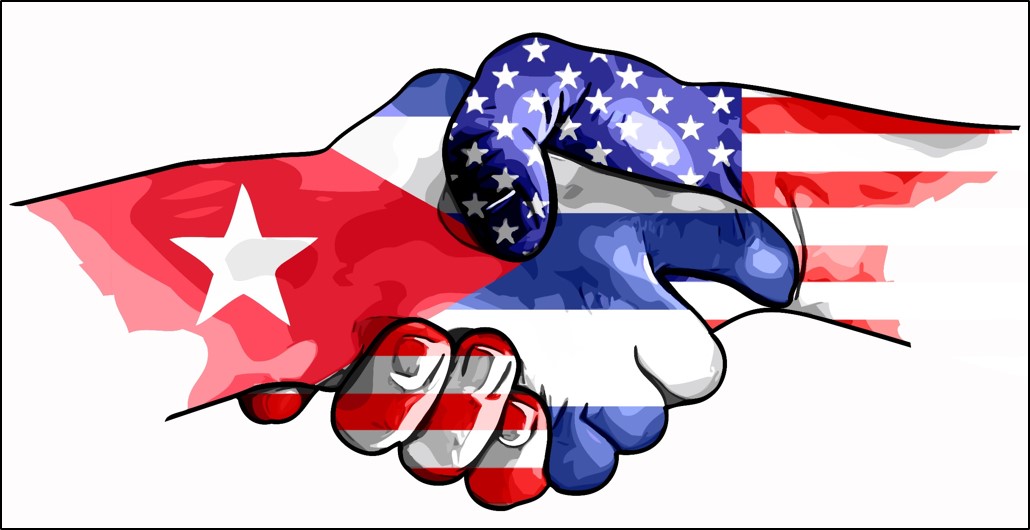
Nothing trumps sovereignty
We in the U.S. owe the government of China about $1.2 trillion. That’s the value of the U.S. Treasury securities held by China that our government sells to finance our debt.
So, here’s a mind exercise: What would happen if China came to us and said, we’d be happy to cancel the debts you owe us, but you’d have to adopt China’s communist system as your own?
$1.2 trillion is a lot of money. But, even in a country as polarized as ours, you wouldn’t find a taker. You could bring that offer to any American among the 7.9 million people who visited the Lincoln Memorial last year, the 4.2 million who went to see the Statue of Liberty, or the 2.4 million who traveled to see Mt. Rushmore in 2015, or to any one of us today. The only answer you’d hear would sound like a colorful variant of “hell no.” If anyone in our government said yes, it would stir a revolt.
That’s like the devil’s bargain at the center of the U.S. embargo against Cuba. The deal it offers to Cuba is as simple — and as poisonous — as our imagined debt deal with China. Our policy tells Cubans that if they’d just drop their communist system and replace it with ours, we’d stop trying to bankrupt their economy to force their government to collapse.
We’ve been offering this deal for six decades, and the policy has failed because Cubans won’t sacrifice their national sovereignty in exchange for having our embargo lifted.
In Havana on December 17, 2014, when Presidents Barack Obama and Raúl Castro announced their agreement to resume diplomatic relations, we witnessed what seemed like a collective sigh of relief; from the students who marched joyfully past the monuments to Cuba’s wars of independence to the texts exchanged among hard-bitten Habaneros (so-called “Godless communists”) who praised St. Lázaro for his righteous intervention in bringing hostilities with the U.S. to an end.
In remarks broadcast unedited on Cuban state television, President Obama proposed a new deal for Cuba. While he pledged to keep standing for American values in Cuba, he promised not to do so at the price of Cuba’s sovereignty. He said, “It does not serve America’s interests, or the Cuban people, to try to push Cuba toward collapse.”
Although Congressional action is needed to lift the embargo, the President promised to change regulations, e.g. those within his reach to spur more travel and trade, without first extracting concessions from Cuba’s government. This relief from coercion – plus the prospect of closer ties with the U.S. and more prosperous, peaceful times for Cuba’s people – excited that impassioned reaction. Since December 17th, the President has kept his word, implementing wave after wave of Cuba policy reforms.
Historically, Cubans, so deeply affected by U.S. policy, have followed our presidential elections closely; though this season, they’d been less engaged. Both major party candidates had said they supported Mr. Obama’s decision to normalize relations, although Mr. Trump added that he would have cut “a better deal.”
However, in a recent speech he delivered in Miami, the Republican Party nominee said he would reverse President Obama’s policies, unless President Raúl Castro met every one of his demands. This has jolted Cubans into paying much more urgent attention to the 2016 campaign.
As the Associated Press reported, “Cubans are suddenly envisioning the possibility of a U.S. president who would undo measures popular among virtually everyone on the island, from hard-line communists to advocates of greater freedom and democracy.”
This proves that Ambassador Jeffrey DeLaurentis, our top diplomat in Cuba, was absolutely right when he said in an interview with Temas, a Cuban journal this week, “Americans and Cubans have a lot more in common than they think.”
In the U.S. and Cuba, we both love our sovereignty. Sovereignty is a cherished thing that cannot be dealt away. Not for all the T-bills in China, and not for “a better deal” with Cuba.
(From Cuba Central)


